
Muse & Mastery
Hosted by Aliya Cheyanne, Muse & Mastery is a digital sanctuary for creative thinkers, makers, and seekers. Each episode explores how we can live, create, and evolve in alignment with our purpose.
Muse & Mastery
The Back to School Edition | Ep. 16
Use Left/Right to seek, Home/End to jump to start or end. Hold shift to jump forward or backward.
Welcome to Muse & Mastery (formerly known as The Prolific Hub Podcast/3tingz Podcast).
This week the hosts discuss the:
- Question of the week: What are some memories you have from school?
- Back to school roundup: Getting back into the routine, student loans, the nationwide teacher shortage, student struggles, the school-to-prison pipeline, Affirmative Action & CRT.
- Mental Health Tip of the Week: Black students find allies in quest for better mental health: each other
Theme Music:
She No Dull Beat by Nana Kwabena
Festivities in Belize by RAGE Productions
Enjoy the episode?
- Share it with friends!
- Send a voice note or text!
- Rate & review the podcast!
Follow @museandmasterypod on your favorite SM platforms!
Watch full interviews here on YouTube!
Join me over on Substack!
Check out my favorite brands and snag a discount!
Grab a guided journal here!
Are you a creative, solopreneur or entrepreneur who’d like to be featured on Muse & Mastery? Let me know here!
Hosted by Buzzsprout. See the Buzzsprout - Privacy Policy here.
Welcome back.
Aliya Cheyanne:Hey y'all, hi Treatings in the building.
Tasia Marie:Treatings in other buildings.
Aliya Cheyanne:Episode six we back we live it's Treatings Today.
Tasia Marie:The actual tree.
Aliya Cheyanne:Right, so I'm your girl.
Tasia Marie:Leah Cheyenne, I'm Tasia Murray and I'm a Kayla Ray.
Aliya Cheyanne:Hey, so Thank y'all for tuning in.
Tasia Marie:Thank y'all for tuning in and welcome back, and before we get started, we are building in our own ads, so Would you like to kick it off, leah?
Aliya Cheyanne:Yeah, just real quick, guys. So if you're listening on audio, you'll already hear this. If you're watching us on video, you won't, unless we say it. So if you want to support us outside of this podcast, you can do so by heading on down to the show notes. I have a guided journal, so if you're interested in journaling or want to give the gift of journaling, you can do that. Head on down to the show notes and click the link to place your order for that.
Tasia Marie:Tasia, and if you're interested in some art abstract art, custom art hit me up, follow me on IG and it is underscore to our core xv II. I also attend a shine. Oh, in the show notes, follow my page on Etsy. You can find me at twa, core xv II. That's also in the show notes and I do have my own website. It's wwwtwa core xv II I.
Aliya Cheyanne:There's that Cool. Thank y'all. I'm going to be doing a podcast. You can definitely do so by rating and reviewing, so leave us five stars, drop us comments on YouTube, subscribe on YouTube, leave us a review on your favorite podcast platform and you might get a shout out if we read it live during the podcast. So thank you for your support.
Tasia Marie:All right. Question of the week. What are some memories you have from school?
Aliya Cheyanne:Good or bad, both or neither. Some memories I have from school. Changing schools is a memory Like going to different schools in different places. So Michaela and I we're in first grade together. We went to the same like grade school, that level I also like I was in the same grade school. I was in the same grade school Completely left. That group went to a different school In Mount Vernon After that for like middle school, so had to restart making friends there. Then ended up in Arkansas for junior high school, had to restart making friends there and then ended up back in New York for For high school, high school or public schools. So yeah, I had a very wide range of Experiences and locations. What about y'all? What about you, tasia?
Tasia Marie:I think my best School memories. I'm not even gonna lie like that, so definitely Went to elementary school in a Bronx. I went to PS 16. And then for middle school I went to MS 13, which both are public schools. Then we moved to Florida, went to Southwest middle school in Palm Bay and then we moved across the way from Palm Bay to Melbourne and I ended up going to O'galley high school for ninth grade and then 10th grade we left and went to Italy so I ended up in Aviano high school. I was gonna say like Aviano was the best part of my schooling, but that'd be a lie because I really enjoy going to school at PS 16. I specifically remember Ms Robin, my music teacher. She was fucking amazing. She taught me how to play the flute. She was this dope-ass white woman. She was older, she had like white hair, she always wore like a floral shirt. She was so sweet and loving and caring and kind. And coach Spadafino, my basketball coach.
Tasia Marie:That was a fallen Italian man, but he was cool as fuck too, though. Mr Burgey was my seventh grade music teacher Like this speaks volumes, because I don't remember anyone's names, but these teachers like I specifically remember. Mr Burgey was my music teacher at MS 13. I loved being in the chorus Like I was alto, had low-woo Hit my Tony back.
Tasia Marie:You like too much. And then when we moved to Florida ooh, this is horrible. As soon as I said, I remember these teachers' names. I don't remember one. I think it was Ms Spencer. She was my science teacher, my seventh grade science teacher. But like she really made me love science and what was really amazing. Like we went to a science fair but the science fair was in Orlando and of course mommy had to work because you know, at that time she had two jobs working back to back. But she was like she would take me after school to Orlando and then drop me home and she did and she had this dope-ass jeep. Like I just thought she was a cool ass teacher. She was young as shit, like this young white girl, but she really made me love science and she was like really caring and loving. Mr Burgey was a black man. That was amazing. I'm sorry I'm babbling now.
Tasia Marie:And Aviano, ms Marshall, my Spanish teacher. I loved her. Like her class was everything. We watched Destinos, like to learn Spanish, which was like a Spanish telenovela, but like it was teaching us Spanish along the way and I was like I'm gonna finish it a funny ass memory from Aviano. I was thinking about this the other day I was talking to my best friend and I'm gonna wrap this up soon, I promise and we were like writing these dirty ass lyrics like off some city girls Trina.
Aliya Cheyanne:Okay.
Tasia Marie:We were. It was a group of us just writing the dirtiest fucking lyrics ever that we could think of, like fuck me in the butt, gut shit. Type.
Aliya Cheyanne:Wow.
Tasia Marie:We would like wrap the shit back and forth to each other, like during lunch. So we got this bright idea to like type it up and we were gonna create a book of these lyrics. So my best friend she types well, no, did she type it up? Or did all of us type it up? Give it to her. Anyway, she went to print it and she went to print it in the JROTC room. So the first time she had printed didn't work. So she hit it again Second time. Of course it printed immediately. She got it left. Apparently, the first time that she had printed the shit did work, it was just the delay. So it was sitting on the printer.
Tasia Marie:Yeah and the colonel and the sergeant found the lyrics right, so they were like who's the last person on the computer? Woo, woo, woo. So of course they go back to my best friend. All the names we had like code names right, so everybody's name kind of coincided with their actual name. I was the only one whose name was like blue spanky boom.
Aliya Cheyanne:Not blue spanky boom, boom, oh my gosh.
Tasia Marie:So everybody else, like, long story short, colonel gives the lyrics to administration. The assistant principal like, starts breaking down my best friend and she starts picking apart the name. She figures out who those other people are, but they can't figure out who blue spanky boom is. And let me tell you how real my bitches are. Nobody said anything, like they had to figure everything out on their own, which eventually they did, because I had the name blue spanky boom, boom. I never got caught. So yeah, I just gave myself up.
Aliya Cheyanne:All these years later.
Tasia Marie:But that was like a fun memory. But yeah, what about you, Mikaela? My bad, I'm all.
Mikhaila Rae:No, you're perfectly fine.
Mikhaila Rae:I was actually just literally trying to figure out a good memory. Most of my high school years I do remember playing sports a lot. Well, throughout my life playing sports, but, like in high school, basketball was the sport that I played. And yeah, I just remember just being very active. Does that make sense? Like I was a police explorer for a little bit, but then it kind of conflicted with basketball. So my coach made me quit. But yeah, just that was it. Not staying in the house, not knowing when the street lamps come on and such Not the street lamps, though.
Tasia Marie:Yeah, I know, that's the universal.
Mikhaila Rae:Oh, this generation doesn't know about the street lamps.
Tasia Marie:Get your ass home.
Mikhaila Rae:I don't think that they know about the street lamps. I feel like everybody stays inside now.
Aliya Cheyanne:That's true. The world has changed a lot since then. I was gonna say too I think her name was Ms Rhonda like a teacher I had in junior high school and I remember her distinctly because I think she saw that I was not very confident in a lot of ways and she went out of her way to build that up a lot of times, sometimes embarrassingly, cause she would do it in front of the class but like heighten me up kind of. But I think about that sometimes and I'm just like shout out to you, sis, shout out to you.
Aliya Cheyanne:That's dope yeah.
Tasia Marie:All right, shout out to all of our amazing educators out there, those of you that are already back into the swing of things, and then those of us that are getting ready to get back into the swing of things. This is definitely our Back to School Edition episode.
Aliya Cheyanne:Facts. And in the shout out to all the educators, shout out to you Boo for holding it down.
Tasia Marie:For your students, thank you. So thank you, thank you, yeah, but T minus two weeks.
Aliya Cheyanne:Well, by the time this drops.
Tasia Marie:Oh, yeah, yeah, by the time this drops we're already live. And then back in school, yeah.
Aliya Cheyanne:Yeah.
Tasia Marie:Wow.
Aliya Cheyanne:So back to school.
Tasia Marie:Back to school, back into routines, back into the groove, back into making sure we're securing our wellness while we grind. But how are you securing your wellness as we get back to this grind, right? So this episode is going to be geared to college students, as well as school age kids and parents. Also, a quick reminder student loan repayments, them joints coming up in October, y'all.
Mikhaila Rae:I love your land. October is right around the corner.
Tasia Marie:August, september, october. Yeah, that's less than two months. All right, tell Joe Biden he lied about loan forgiveness.
Aliya Cheyanne:Hmm, all right, listen, listen, listen. I saw a meme that said there are aliens. Basically, I can't repay my loans, and I feel like, I feel like that's the excuse that y'all need to start using, because what the hell For real?
Tasia Marie:This is about to get real rough out here, like I don't know, but if you're not doing anything else like hop back in school, you won't have to repay it, at least not at the moment.
Aliya Cheyanne:There's always that.
Tasia Marie:So we're going to hit on the nation. Teachers started this real quick and also students struggles and of course you know we're going to wrap up with a mental health tip of the week. So, starting off nationwide, there's this article from we are teacherscom and it says 35% of teachers say they're likely to quit within the next two years. That seems like a low number but it is actually pretty high. A lot of schools are still hiring for a lot of positions because a lot of teachers retired or just straight up quit. It's been really rough after the pandemic Coming back, dealing more so with behaviors than actually teaching, dealing more so with social emotional learning more so than teaching, trying to get kids back on track, also focusing on getting them onto state standards. You know, for your core teachers it's been a very tumultuous last three years since the pandemic started.
Aliya Cheyanne:Well, we're no longer in a pandemic, but yeah so yeah, we're not pushing that narrative, we're still in the pandemic Like. Covid cases are rising different. That's what they said right. They're rising in different states Like people are acting like COVID is not a thing anymore.
Tasia Marie:Like it's still a thing and it's a whole new variant too.
Mikhaila Rae:I know somebody that has COVID right now that's fighting for their life Well, not fighting for their life, but fighting nonetheless.
Tasia Marie:Facts Wow, wild yo. And we're getting ready to go back to school. So, you know, those cases are definitely gonna double yet again. But this teacher shortage, like now, I don't know, teachers are crucial, right, we're needed. Without teachers, you don't have your doctors, you don't have your lawyers, you know, you don't have your creators. We need teachers.
Tasia Marie:But teachers are being burnt out or they're not being paid enough on a lot of levels. They don't wanna deal with the behaviors. So how do we get teachers in? Right, this is a position, that is, it's a necessary position and it's not as respected as it should be. And a way of showing your respect is paying people so that they can live on one job. I know some teachers who have like three jobs after school, right, so that's also. The wages are also feeding into the national teacher shortage, you know, in addition to behaviors.
Tasia Marie:Now I will say things are getting a bit better towards the end of last year, like second semester, when, like, students really started to buckle down like, oh shit, okay, yeah, this is school, like this is what we gotta do. So they're starting to get back into the swing of things, man, but that teacher shortage really hurt a lot, I know, like we started off with a lot of substitutes. And when you have substitutes in the building, kids know they can run over them and it's not like the subs are teaching lessons. They're giving out worksheets, right. Some subs are just literally sitting there as babysitters. So that also feeds into the bad behaviors that students exhibit and then, like you as a regular teacher, you know who's there. You have to kind of try to circumvent that, curb those issues, those behaviors. Yeah, that's a lot.
Aliya Cheyanne:I was gonna say like I usually come to the table with stats. I don't have them right now but I know, especially in certain communities like quote, unquote, inner city low income communities, a lot of the public schools work with like Teach for America and other kinds of programs. So essentially you're having a lot of people who are not part of the community coming into the community to teach our young people. So I think that's a good thing To the community to teach our young people and when you didn't grow up around the certain culture, you're not like respected because you're different. Like there's just a way of like handling our young people like more delicately, I guess, or working with them in a different manner that some people who are doing programs like that are not used to. So they get into these environments and they cannot survive it. Like they sometimes don't complete those fellowships and those programs. They have to leave early, like take insane amounts of like sick leave because the environment is just like not what they're used to, and that's also contributing to it.
Aliya Cheyanne:And I think one thing you mentioned earlier, teja, too, is like you had a black male teacher when you were younger.
Aliya Cheyanne:Like I don't remember a lot of black male teachers that I had specifically throughout the course of my school.
Aliya Cheyanne:I've seen them, but they weren't necessarily my teacher in my school and I've heard about what a difference it makes sometimes for our young people in schools when they have like black male teachers, because sometimes lots of people get into stereotypes but sometimes our young people are coming from homes where they might not have like an uncle or a dad or a grandfather or some sort of like father male figure in their life. So sometimes more than they know or more than they realize, they're looking to their male teachers for that. So I don't know, like we can't afford a teacher shortage, like America is already so behind other countries in our education system, like we need to be paying our teachers well and like the roles that are most important in this society are the ones we deem the most invaluable and the ones that really should not be what they are and make as much as they do get deemed as the most important, and like that inequality is just insane, it's wild.
Tasia Marie:It's wild and black male educators do matter and do make a difference. Representation matters. That's part of the reason why I've stayed in the classroom and definitely part of the reason why I teach the demographic that I do. I want them to see someone who looks like them and to know that someone who looks like them cares for them and loves on them. So representation definitely matters. Seeing black males matter. Black male educators sometimes are like the unicorns Unicorns of education. But I've definitely been seeing more black male educators here. We have quite a few here. So if you're going to college, if you're currently in college, thinking about what you wanna do next, teaching is always an amazing thing to do. Whatever subject you like, there's always a course to be taught and it's also given back to like. Our kids are literally our next generation. Just wanna make sure you guys can sustain as best as this earth is gonna sustain. So let's drop knowledge on our kids.
Mikhaila Rae:I think that's why a lot of people are I don't wanna say a lot of people, but I know of some people that end up going to different countries to end up teaching because they get better treatment. Like, I have a cousin that's in Dubai right now and I don't know. I guess she's, I think she's teaching English. I don't remember what subject she's teaching, but she's saying that the treatment there is a lot like they respect teachers like a lot more.
Tasia Marie:So yeah, I've heard that multiple times. Like teachers are actually put like on a pedestal there.
Mikhaila Rae:Yeah, cause you're teaching the next generation Exactly.
Tasia Marie:So Can't get a doctor without a teacher? Exactly, yep, it's crazy, but we just have to continue working, continue pushing forward and making sure that our next generation is gonna be okay. Like seriously, I was just thinking, oh sorry, no, go ahead.
Mikhaila Rae:This might have nothing to do with what we're kind of talking about, but in the same time it does. I kind of want them to like put certain things back into schools, like you know, like how they took out Persev, they took out Homack, they took out like shop. Well, I'm not sure if in all schools, but I don't really hear of many vocational schools like Woodwork and stuff like that.
Tasia Marie:They don't have it anymore.
Mikhaila Rae:Oh, okay. So then I'm not saying the wrong thing, but I want I wish they would put that back into schools because, like even with some kids, like they may have food insecurity, maybe they have a class that teaches them how to cook. They at least get one, you know for a fact. At least they're getting one additional meal to their lunch. So, yeah, that's all. That's real.
Aliya Cheyanne:Yeah, I completely agree with that. I feel like some of the things that we really need to be learning in school we don't, and like we're producing a society of people like, who don't really know how to function as, like, young adults, because it's like you leave school and you're thrust it into the real world and it's like you're not fully prepared. So I completely agree with that.
Tasia Marie:That's real Home economics, like basic skills, balancing a checkbook and especially writing in cursive, because when you do ask kids to sign this signature, you know some of them are like how do I do that? And that's crazy to me. I feel like not, I feel like in the first grade I was writing cursive, like that's how we were learning to write our alphabet in cursive. And those are just small, essential skills. But again, in the age of AI and the age of technology and the age of them and when I say them I mean the powers that be I just have to clarify that after the whole Jimmy Fox situation but them, the powers that be, they've trained us Like they have us in control, right. Even when I think about schools, schools should be rethought of.
Tasia Marie:There are ex-Q schools now high schools Ex-Q high schools are amazing because it actually allows students to pursue what they love. So of course, you're getting your core education, but they're also mixing in those real world experiences. So, let's say, a child wants to become a mechanic, all right, so we're gonna expose you to this form of engineering. You can have a class where you're actually working or shadowing a mechanic in the community. So it tailors to each individual's education. Right now, we're just teaching kids in general Like that's why a lot of kids are just tapping out, because when the fuck are you gonna use Y equals MX plus B outside of class, because I've never used it outside of high school. Have you guys used it? Facts me, though, like when have you?
Aliya Cheyanne:used it.
Mikhaila Rae:What is it the?
Tasia Marie:Pythagorean theorem. What ever, it is Pythagorean theorem, or have you pronounced that shit?
Aliya Cheyanne:Yeah, when have you all used it Outside of?
Tasia Marie:the classroom Never Like what's the other one.
Mikhaila Rae:It was like co-sign tangent or something like that. Right, I'm just like. I just say those things. I was like I don't even know when to use it now.
Tasia Marie:Like the fuck Facts, this Tapping out Cause. How the fuck does this equate to, like you said, michaela, how does this equate to me getting a fucking meal tonight? How does this equate to me having to leave school early every day to go pick up my younger siblings because my mom is at work and my dad is locked up? My kids are dealing with so much more than we had to deal with when we were in school. So in order to tailor education for them to feel like it actually works for them, we need to sit down and talk to them and see what they want to do and then help them get into that realm, because that's how you really get people into. You know education, yeah.
Aliya Cheyanne:I have a couple of thoughts on that, because I was just talking to my nintages mom about this recently but and I know other places in the world do this already but I earlier this year I had gone to Aruba with my grandma for her birthday and we were talking about the education system there and how they track things and basically young people will be in school together up until a point and then they kind of take like a test, a form of a test, and it kind of distinguishes what track they need to follow.
Tasia Marie:China does that.
Aliya Cheyanne:China does that, and so the way it works, I guess in China as well as Aruba and other places, is like if students score exceptionally high, they get to kind of advance to like high school or like lower level, collegiate level kind of, and then if they track kind of middle, then they go on to like what's more of like a junior high school experience, and until they're caught up and they can advance, and then if they track on the lower end, they're not completely discarded, they go into a form of education that's more like trade schools.
Aliya Cheyanne:They get to work with their hands and it's not like they're just doing that, they're still learning to, so that if they advance and get to a point where they can move on to the other levels, they can do that as well. But in the interim they're also learning to use their hands. And it sounds a little like dystopian, maybe a little like you know off, to people maybe in America who are not used to that kind of school system. But essentially you're, essentially you're supporting the capacity that students have and you're going at a level at which they can kind of gauge themselves and grow, instead of kind of forcing people to all follow the same track at the same time. That doesn't always work.
Tasia Marie:Exactly they. It's like producing robots, essentially, but also it's like producing the school to prison pipeline, essentially.
Aliya Cheyanne:Yeah, before we even hop into that, I wanted to circle back on one thing that Michaela said to around like students just needing meals, like I don't know. I mean, I think every state has their own thing, but in New York City we have New York City like summer meals, because a lot of kids are dealing with food insecurity and are not getting meals from other places like they still have to rely on, unfortunately, the unhealthy, nasty school lunch that is available. So, without disclosing the exact name of my, of my organization where I work, one thing that my job does is build high capacity hydroponic farms in title one schools. So title one schools are schools where like maybe 70, 75% of the students are qualify for free lunch, basically because they're below a certain economic line. And the one thing I really do like about the program is that you know the students can have access to the produce. They get it for free, for themselves, for their communities, for their family.
Aliya Cheyanne:But they're also learning nutrition education, because a lot of times in our neighborhoods we're surrounded by junk food. There's no access to like healthy food or if there is, it's unaffordable. It's like it's like when the whole foods got dropped in the middle of Harlem and it's like who is this for? Because a lot of people at the time when it first landed there could not afford whole food prices. So that's also something that we're keeping in mind too. But pivoting to the school to prison pipeline, I will say I've never been to prison, I've never had the food. But the lunches that our kids be getting in the schools I don't know how much different they are than like junk food, because it is so disgusting, sometimes Like I think it's gotten worse since I was in school, like seeing it now, sometimes smelling it now I'm just like yo, what is going on? It's bad.
Tasia Marie:It's literally, it's like desensitization, essentially that we're teaching our kids and not all of our kids, because all of our kids don't experience school in the same way but our inner city kids, our kids that live in hoods, they're experiencing schools in ways that they are becoming desensitized to the things that the system has implanted. So the way that the bells ring, right, I hate the fucking ringing of the bell. When I was in high school in Aviano now, that was a DoD school. For those of you guys who are unaware, that's the Department of Defense.
Aliya Cheyanne:So I was about to say what is that for the people that don't know?
Tasia Marie:Yeah, so Department of Defense school. It was a school on bass and we didn't have bells like. Well, once they built the new school, it wasn't bells like anytime the bell would ring. It was a literally classic classical music that would play, and it would play all throughout the class transitions.
Aliya Cheyanne:Wow.
Tasia Marie:So like you're in the hallway, like at your locker getting your books and it's like it's just playing this nice classical music, and I'm thinking back to how it made me feel and it didn't give me an anxious feeling versus when I was in the ninth grade at O'Galley in Florida. That was a. It was a huge fucking school. First of all. It was like over a thousand kids, like my graduating class in Aviano was 50. I think it was 54 of us that graduated when I graduated. So there's that. Ooh, I forgot what I was saying.
Aliya Cheyanne:While it comes back. I was going to say to yeah, I've only ever had Bells, so the classical music thing is really nice. But I was going to say, like just piggybacking on what you said about different schools being different experiences, because it all boils down to funding, like property values, taxpayer dollars on properties because I think about the schools in my current community and some of the schools that I went to In Mount Vernon. It was a decent school While there were residential buildings, there were a lot of homeowners in the area and the funding was different. Going to a Catholic school and high school, obviously it's a private school, you got to pay tuition, so the funding was very different. But I even think about when I was in Arkansas and junior high school. It was a public school but it was very well-funded because the school was directly tied to the property values and the taxes on the homes there. It was very clean all the time.
Aliya Cheyanne:We had great tech. Almost every classroom had a smart board and all these things. We had dedicated classes for certain things. I think when I was in junior high school there, if you wanted to take wood shop or whatever as an elective, that was still a thing at the time at that school we actually had real computer classes where you learn the computer. I don't even know if the kid like that's not a thing anymore because we're in a tech era. It's different now. It's not the same. The environments matter. Then. Compared to some of these wealthy kids that go to these expensive high schools in Manhattan, they're just leaps and bounds ahead of the schools in the hood. It's just really different depending on where you go.
Tasia Marie:Yeah, definitely. Speaking back to the contrast in schools, in Aviana it was a DOD school which was a public school, but essentially it kind of felt like a private school, a private public school. My ninth grade year was in Florida and that was a public school and the bells rang. There were 10 minute changes between class periods, so that tells you how big the fucking campus was, but it just felt like a jail. The bell would go ha ha ha.
Tasia Marie:And then we're all scuffling off trying to make the class. It's a system. School is a system. Even when you're in elementary school you have to line up Everybody getting a line. We're going to walk in a single file line to the campus area. If you step out of line you're going to get in trouble.
Tasia Marie:We're already training our kids up the rates of disciplinary actions, like taking against black and brown kids versus white kids. It's a difference. You could have a black student who's just very outspoken and they speak their mind and that can be perceived as a bad kid and they can get written up for being rude to the teacher or disrespecting the teacher. When you have a student who's their counterpart, they may speak up as well, but it's perceived differently because of how it's packaged. We have those disparities too in the classrooms. That's why I say representation matters, because I know in classes where I had black teachers I did feel a bit more comfortable to speak out and say more In my classes with my white teachers.
Tasia Marie:I had one teacher in high school and this was in Aviano. I swear on my life, I swear on my life. She was a racist. I just swear. She did not like people. I just hated speaking up in her class. I hated going to the class and I really didn't. I don't know, I didn't want to interact. That relationship that you have with your teacher makes a difference in how you receive the content or how you receive your knowledge from that class.
Aliya Cheyanne:Yeah, I think the other thing, too is even beyond the school to prison pipeline, especially as it pertains to certain communities. It's just this indoctrination into being the type of citizen that this country wants, one who is not going to push back against the rules like one who's just going to be conform and be indoctrinated into being a quote unquote good behaved, non disruptive person. I think we lose our agency and we lose advocacy skills and we lose critical thinking skills. When we do that. You should want to push back against things that are not right. You shouldn't feel fear for stepping out of line. Quote unquote. I just think that in that way, our education system is doing what it intends to do to make the type of person and adult that it wants to make. I think, as a society, it fails us in that way.
Aliya Cheyanne:I also think about the other side of this, where you're thinking big picture, about social, emotional, behavioral things, like you mentioned before. Just behavioral nature. What about kids who are not intentionally trying to do something? We have so many kids who have ADD or ADHD when they're growing up in schools and they're constantly getting in trouble because they have something that they can't control, but the classrooms are not equipped a lot of times to handle that. A lot of times they get in trouble for that or people who didn't realize that's what was going on with them when they were younger, and then they don't get diagnosed until they're an adult and it's like, oh my God, my whole childhood. It's crazy.
Tasia Marie:It really is. A lot of kids are misdiagnosed in school, either misdiagnosed by a teacher who's just experiencing this student differently, or even misdiagnosed by a parent, because sometimes those diagnoses lead to monetary funds.
Aliya Cheyanne:Let's just put that out there that part, that part, that's very real.
Tasia Marie:Yeah, it's just a lot. When it comes to student struggles, the disparities are huge. The neighborhoods that kids are coming from. I don't think a lot of people realize too that a lot of our students deal with homelessness, in addition to not knowing where a meal is coming from, also not knowing where you're going to lay your head at night. A lot of students are staying with friends, or even staying with people, friends of friends, or somewhere that's unfamiliar to them, or dealing with a crazy household, or they have to be the parent in the household. Kids are dealing with a lot. Students are struggling with a lot. We do have to understand that.
Tasia Marie:The pandemic definitely exacerbated those behaviors. If you think about it, we were all locked up and pinned up in a house together. If you're pinned up in a three bedroom and you have five siblings and all of you are on online school, but only three of you have laptops and the Wi-Fi is only but so fast, there are so many issues that our students deal with outside of school as well as inside of school, because I tell the kids all the time I couldn't do high school again. These kids are different. I tell them all the time I couldn't do high school. I would have been like. No mommy, you got to put me in private school or online school.
Aliya Cheyanne:Yeah, we talked about that season one before Makilla. You were going to say something.
Mikhaila Rae:Oh, I was just circling back to. Sometimes with people that have children with ADD, I'm not necessarily sure of all of the communities, but I know for the Caribbean community. A lot of the times they'll be like, oh, they'll outgrow it, they completely just dismiss it, or they'll try to beat it out of you, which is just like to me. Yes, you can't beat somebody for something that they can't control. I don't get it.
Tasia Marie:That's huge. So we all have to have an understanding, empathy, actually talk to our young adults, see what's going on, see what they're going through, Because sometimes I would say that kid that's acting out oh it's a different story. Yo man, something else is going on, right. I've only I can literally say I've only had two kids like who. Clearly I was a trigger for them and I couldn't get to the root of it. And I was okay with that, because I'm not the only person in the building who can help this kid. So I will point them in the direction that they need to go to.
Tasia Marie:But we need to learn to stop being so punitive when it comes to dealing with our kids, Like if they speak their minds. I tell my students all the time like, speak up for yourself. You're a young adult, speak up for yourself, be respectful with it, but advocate for yourself, Like you're the one who's experiencing this education. No one else is experiencing it but you. So stand up for what you want, speak on what you want, make it work best for you.
Tasia Marie:We have to feed into our kids to like, push them towards standing up for themselves, but standing up for themselves in respectful ways. And then we as adults also have to be able to receive it. I've apologized to a few students quite a few times because I had to come home and reflect and check myself, even in the situation, but also learning to apologize to our young adults too, because we're not always right and they're not always wrong and sometimes the way we come at them is a bit off putting because of the situation. But if you can reflect and apologize, that shows a lot and that also teaches that student. You know that empathy.
Mikhaila Rae:I was gonna say maybe because this is also from experience. Like if you have a child, just because they're a child doesn't necessarily mean that the adult is in the right, if that makes any sense. Like I've had experiences where, like I was right about something, even as an adult. Now, like I was telling I think I was telling you, aliyah, where we had gone somewhere my aunt had come into the car and my dad said to me how come you didn't say anything to your aunt? Mind you, you're a grown person coming into a car full of people we are driving off and you're not saying anything. So it's like she came into the car. If I came into her house and didn't say anything, it would be a problem, I would be looked at as like being disrespectful. So why is it different? Because in this particular situation I'm the younger person. That makes any sense.
Tasia Marie:But yeah, sometimes your kids are right. Yes, and we need to learn to apologize Like it's okay to apologize to a kid, like that shows them humility, that shows them, you know, being a real nigga like being a truthful person. You know, with you being truthful, you can apologize about your wrongs, but yeah.
Mikhaila Rae:But I also will say again to that like by doing that, like it kind of like helps boost their self-esteem instead of like diminishing it, cause I feel like now.
Tasia Marie:That too.
Mikhaila Rae:Ooh, I feel like now. It's sometimes hard for me to like stand up for myself in certain situations because of that to a degree, but I'm getting better, come on.
Tasia Marie:Definitely, and the way that we pour into our kids now definitely translates to how they will be as adults. That's why I'm always like, when I have a student who's like standing up for themselves and speaking up, I always admire them and I let them know that vocally, like, keep sticking up for yourself, keep speaking up for yourself, because no one else is going to do it, especially as minorities too.
Aliya Cheyanne:So, as long as you're doing it the right way, but yes, learning to communicate verbally instead of jumping to physical is important.
Tasia Marie:That is the huge part. Huge part, yeah. But in addition to that, education's getting a bit weird in a few places, places being Florida. You want to take that one away?
Aliya Cheyanne:Yeah, I think we can keep it short. Like we've all seen the news and the headlines around affirmative action and how that's had an impact on racial equity, work and diversity, equity and inclusion in multiple spaces, not just schools but also professionally, like a lot of things are changing before our eyes. But specifically Florida has made headlines with their attack on quote unquote woke culture and CRT critical race theory, which, again I will always say critical race theory was always a collegiate level course of study. We've just expanded it to mean more things and are using it as a way to like attack American history in lower level schools. So just with DeSanta and their DeSantis, desanta oh my God, desantis.
Aliya Cheyanne:And Florida's regulation and yeah, yeah, For middle schoolers being taught that enslaved people benefited from slavery and our vice president, Kamala I always want to say it wrong nigga Kamala Harris' comments and just her reaction to that also making its rounds on, like Fox News and other outlets, People calling her out on that. But just a ban on CRT and certain lessons that are part of American history being wiped clean or diminished or watered down is just insane to me. Black history is American history. In this country we have history before enslavement, yes. However, glossing over that and the horrors that were unleashed on black ancestors during that time and following that time from reconstruction to the post-war era to civil rights, like just discounting all of that history, is just insane. I think one of the most effective ways people can combat that.
Aliya Cheyanne:Obviously there are people on the ground who are pushing back against all of these changes and really fighting to ensure that education persists, really fighting to ensure that books are not banned from certain libraries, whether it's covering black authors or LGBTQ history or LGBTQ authors, like, whatever the case may be. It's going to start in the home. I just hope that and it's not just Florida. Florida does something. They make headlines, but a lot of other states follow suit.
Aliya Cheyanne:I'm looking at Texas, I'm looking at Georgia, I'm looking at a bunch of Midwest states that are quiet about doing the same thing but are essentially doing the same thing. It's really going to be on the parents and the guardians to ensure that your kids are educated and equipped to move through this world and this life with a historical context that will not allow certain things to be repeated again, because they're working really really hard to make us forget so that certain things can likely be repeated again. That's all I'm going to say on that. It's really going to be on parents to just make sure that you're pushing back as much as you can at your kids' school, but also teaching them what they need to know at home, because this country is going fucking insane.
Tasia Marie:Definitely.
Aliya Cheyanne:Then the other little quick tidbit on that, just circling up this whole thing, because we spent a lot of time talking about young people and grade schools. But I was telling Teja before we started recording that I had a conversation recently with a former boss of mine. She said something that's really stuck with me. She said we're groomed to be consumers, not producers, because we were talking about the fact that a lot of times in school we're sent along a certain path to finish high school, go to college, get a good job. We're sent along that path, but we're never really encouraged to create ourselves. We're never really encouraged to be the boss ourselves. It's always like you're being prepared to work for someone else.
Aliya Cheyanne:I think one of the things that drove that conversation is we were talking about and I was talking about my mom talking to this with my mom as well that had I been exposed to different career paths when I was younger, I might be in a different position. I didn't know everything there was to know. I always like to use the example of my space, because a lot of us were coding and we didn't even know it. A lot of us didn't even know that was a thing Every week or that it was a job you can do, and it's now.
Aliya Cheyanne:You see all these people who are out here coding and doing development and engineering on the back end of websites and it's never too late to learn, but it's like damn. Had I fostered that when I was younger, maybe my life would be totally different. And this all circles back to affirmative action and diversity, equity, inclusion, because it spills over from schools into the professional landscape. So a lot of these organizations that like to not select us for certain jobs, like who already had very small quotas to include us in the first place like things are going to be changing.
Tasia Marie:So wake up, get schooled Right. That's why we have HBCUs historically black colleges and universities Like this is where we are going to safeguard our history, because there's no way in hell that you're just going to wipe out all of our history from education and teach that you know slavery, slavery helped. If that's the case, let's try it on y'all asses, so it really helps, but it helped the American economy, like America was built on backs of slaves. Yep, it didn't help.
Mikhaila Rae:It didn't help the power.
Aliya Cheyanne:And slave people Power. Yeah, it didn't help. It didn't help. In that way, slavery allowed for America to become the superpower that it is and is still trying to cling to in this kind of age. Power and a lot of the economic disparities that we see between communities. So, yeah, so, be mindful of that stuff, pay attention and yeah, yeah, and for our mental health tip of the week.
Tasia Marie:Yeah, you pointed out this really dope article.
Aliya Cheyanne:Yeah. So just to kind of wrap it up and we'll drop this article in the show notes, but I saw a really cool article from Chalkbeat, a New York City based education newsletter and outlet, that highlighted students in East Orange, new Jersey, for taking on issues surrounding mental health and coming together as a community to really discuss the unique challenges that Black youth particularly face when it comes to mental health. It goes into a deep dive around the really sad statistics around our community the young people, the suicide rate increasing from like every year from 2003 to 2017. The stigma that still exists in our community around mental health and what these young students in East Orange are doing to combat that, from a forum where they're coming together and building peer support networks and being supported by administrators, and I think it's really dope. So we'll drop it in the show notes for you to read it. So shout out to the young people for taking this matter into their own hands and shifting the narrative for their generation and generations to come. That's what we have to do.
Tasia Marie:Y'all Change the narrative, All right, y'all. Well, thank you all for joining us for another amazing episode. I'm your girl, Tasia Marie.
Aliya Cheyanne:I'm Aliyah Cheyenne and I'm Micaela Ray.
Tasia Marie:And we are your treatings.
Aliya Cheyanne:Yes, thank you for joining us, and don't forget to subscribe, to follow, to like and to share, and we'll catch you in the next episode. Bye, bye.
Podcasts we love
Check out these other fine podcasts recommended by us, not an algorithm.

ShxtsNGigs
shxtsngigs
LOVERS by shan
LOVERS by shan
Can't Afford Therapy
Can't Afford Therapy Podcast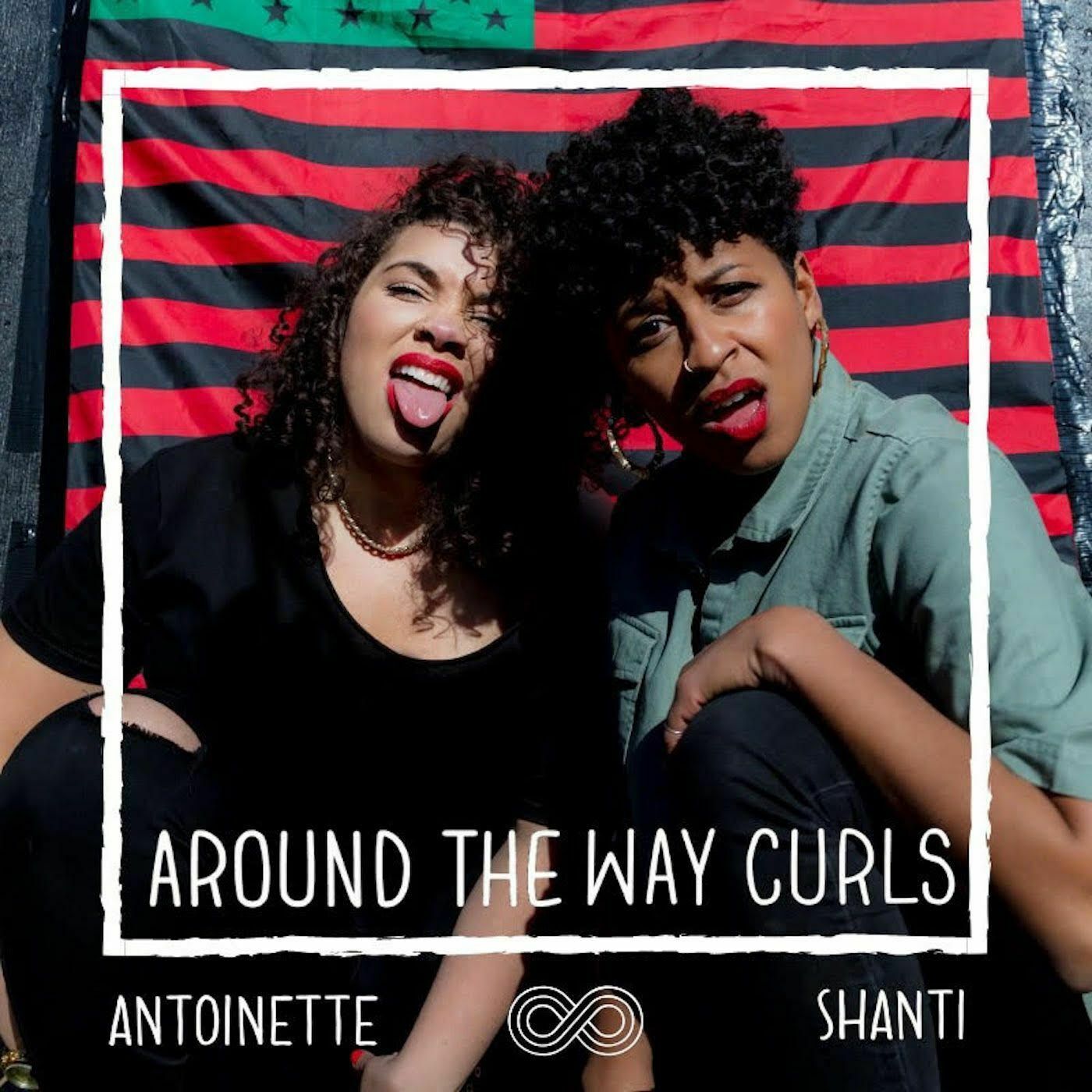
Around The Way Curls
Antoinette Lee & Shanti Mayers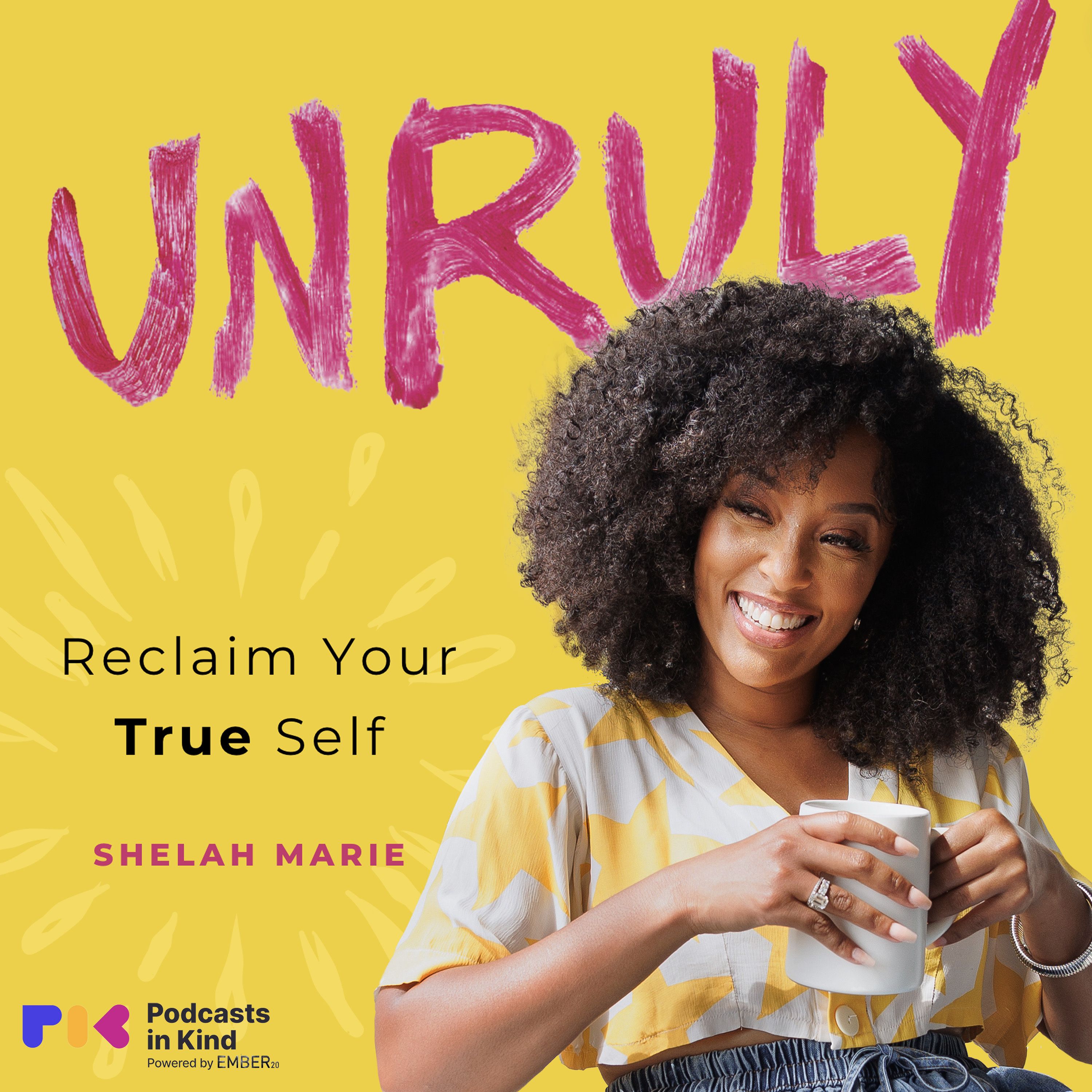
UNRULY WITH SHELAH MARIE
UNRULY WITH SHELAH MARIE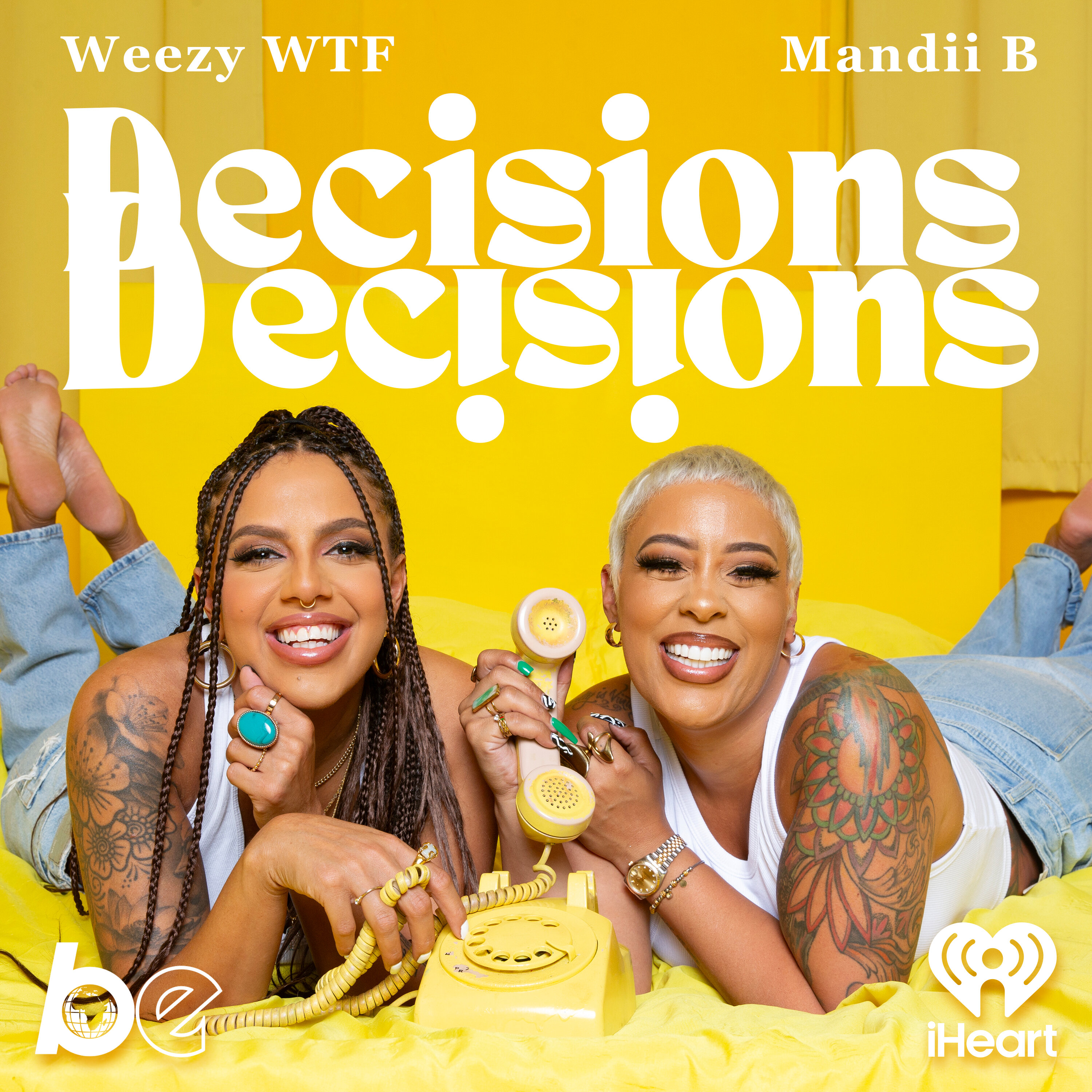
Decisions, Decisions
The Black Effect Podcast Network and iHeartPodcasts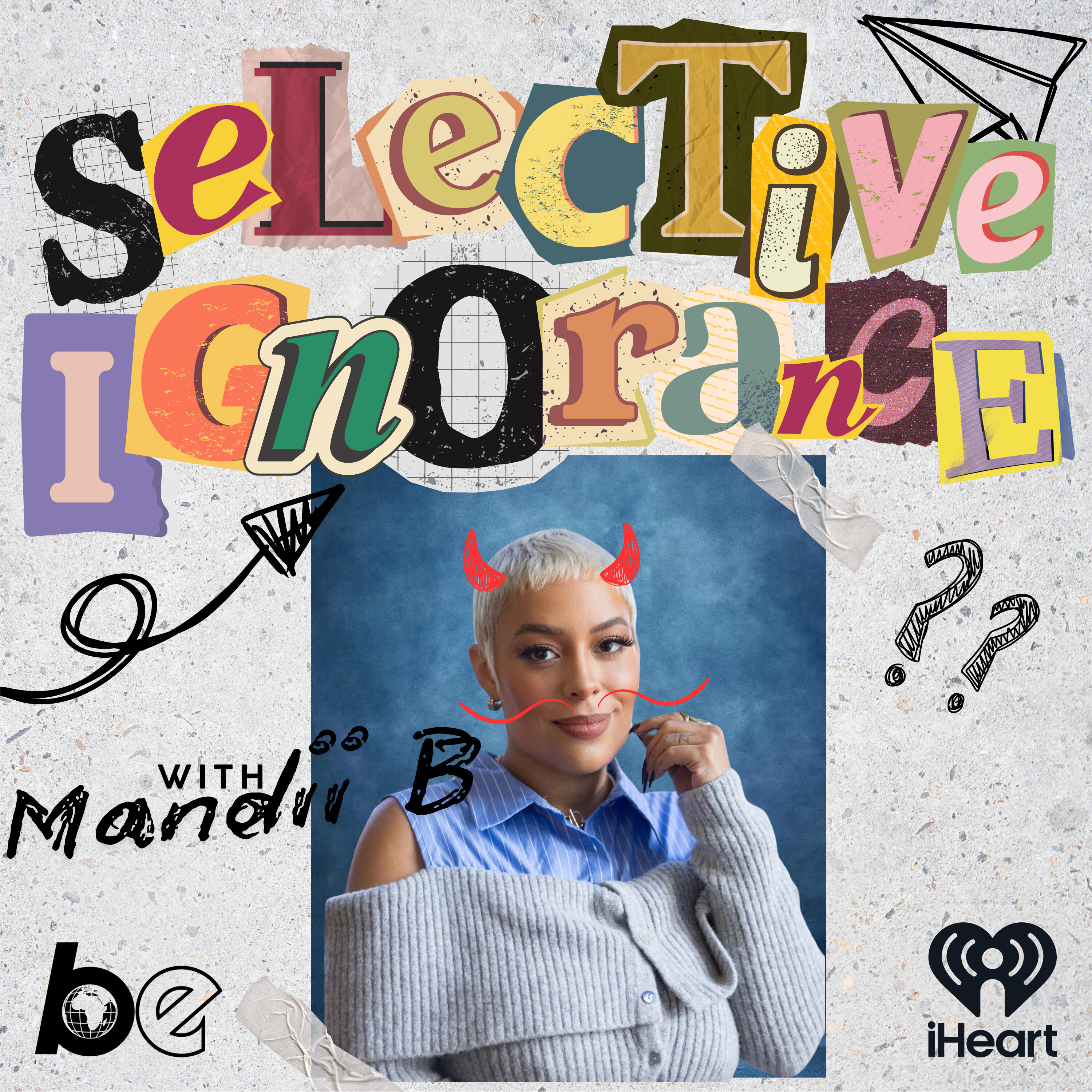
Selective Ignorance with Mandii B
The Black Effect Podcast Network and iHeartPodcasts
The Slumflower Hour
Chidera Eggerue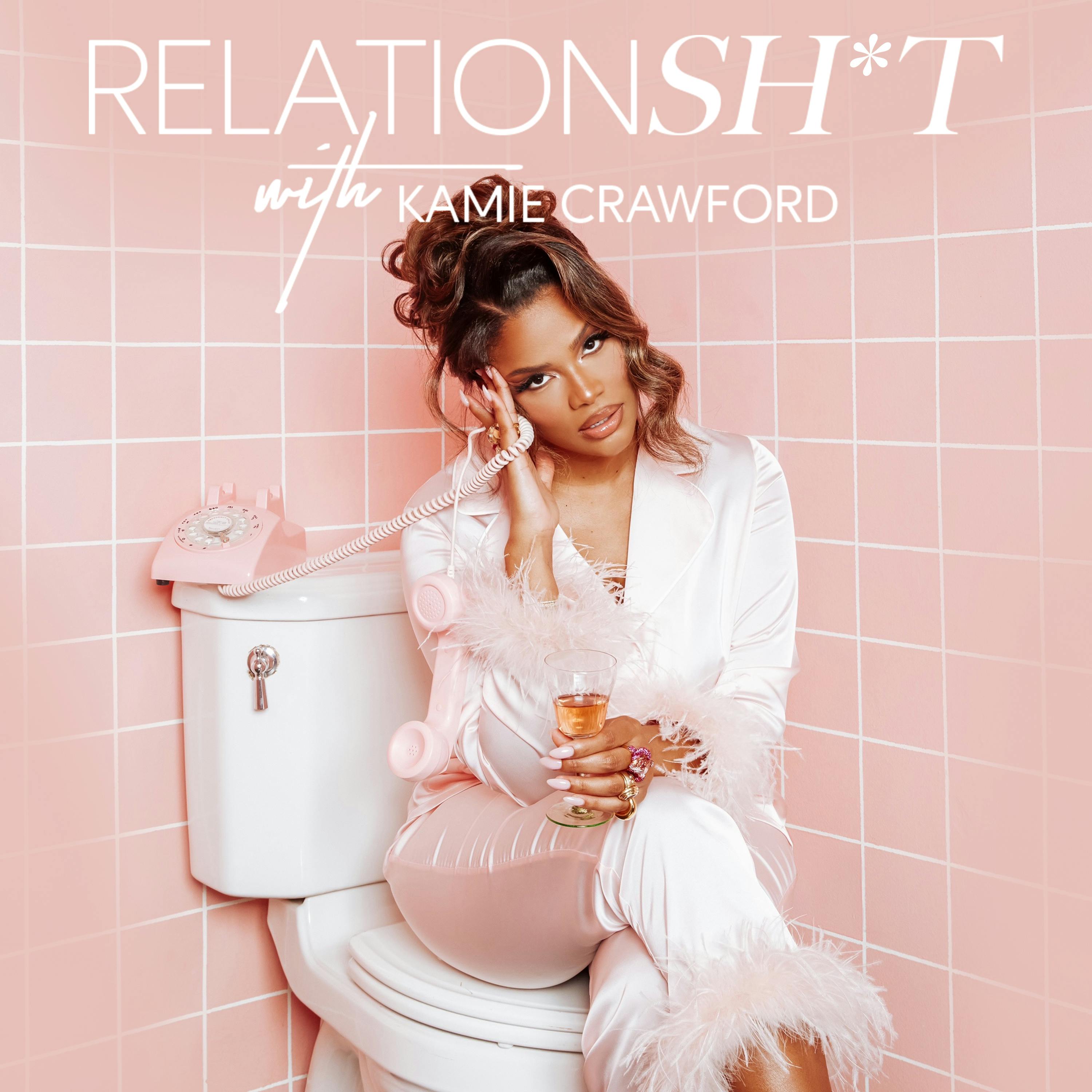
Relationsh*t with Kamie Crawford
Kamie Crawford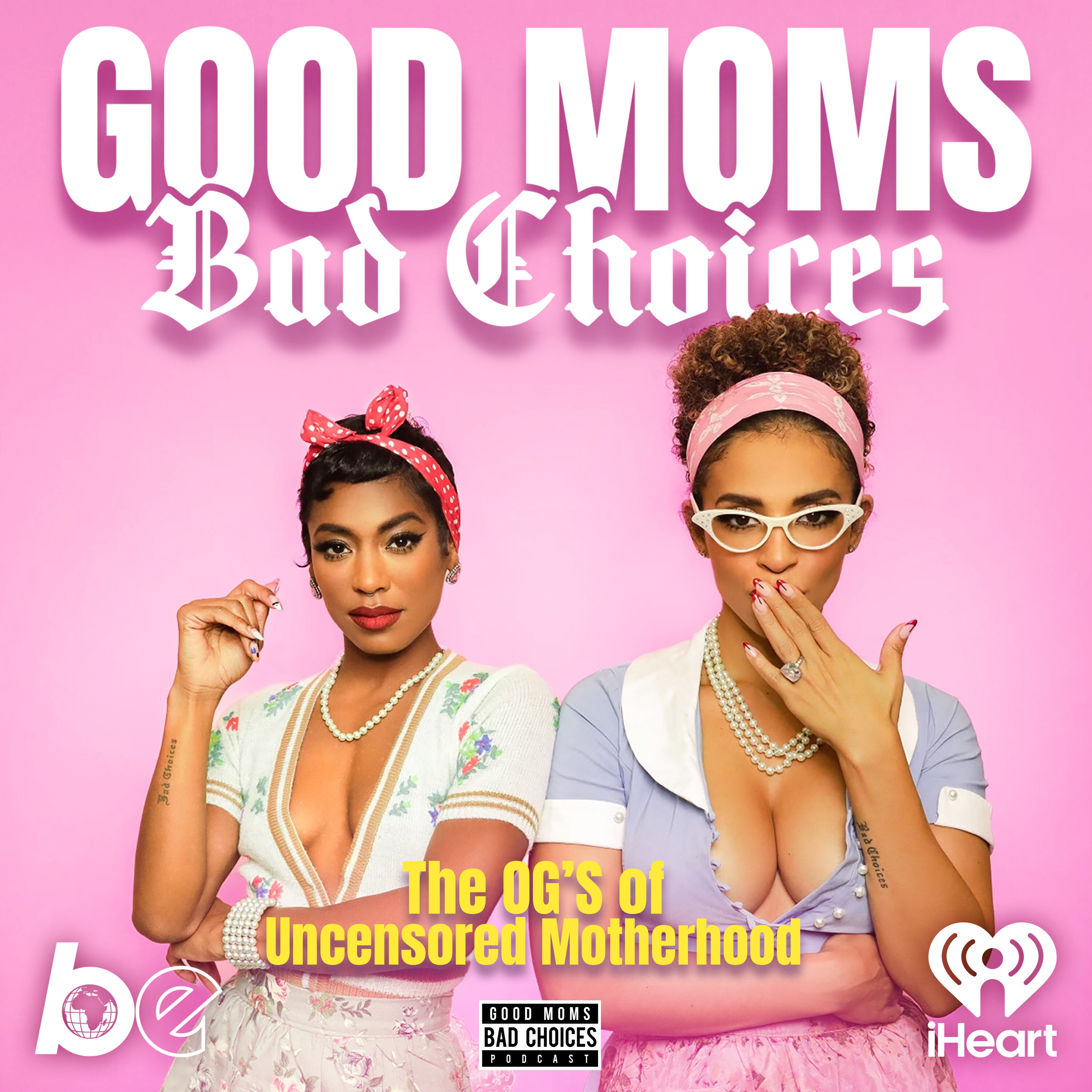
Good Moms Bad Choices
The Black Effect Podcast Network and iHeartPodcasts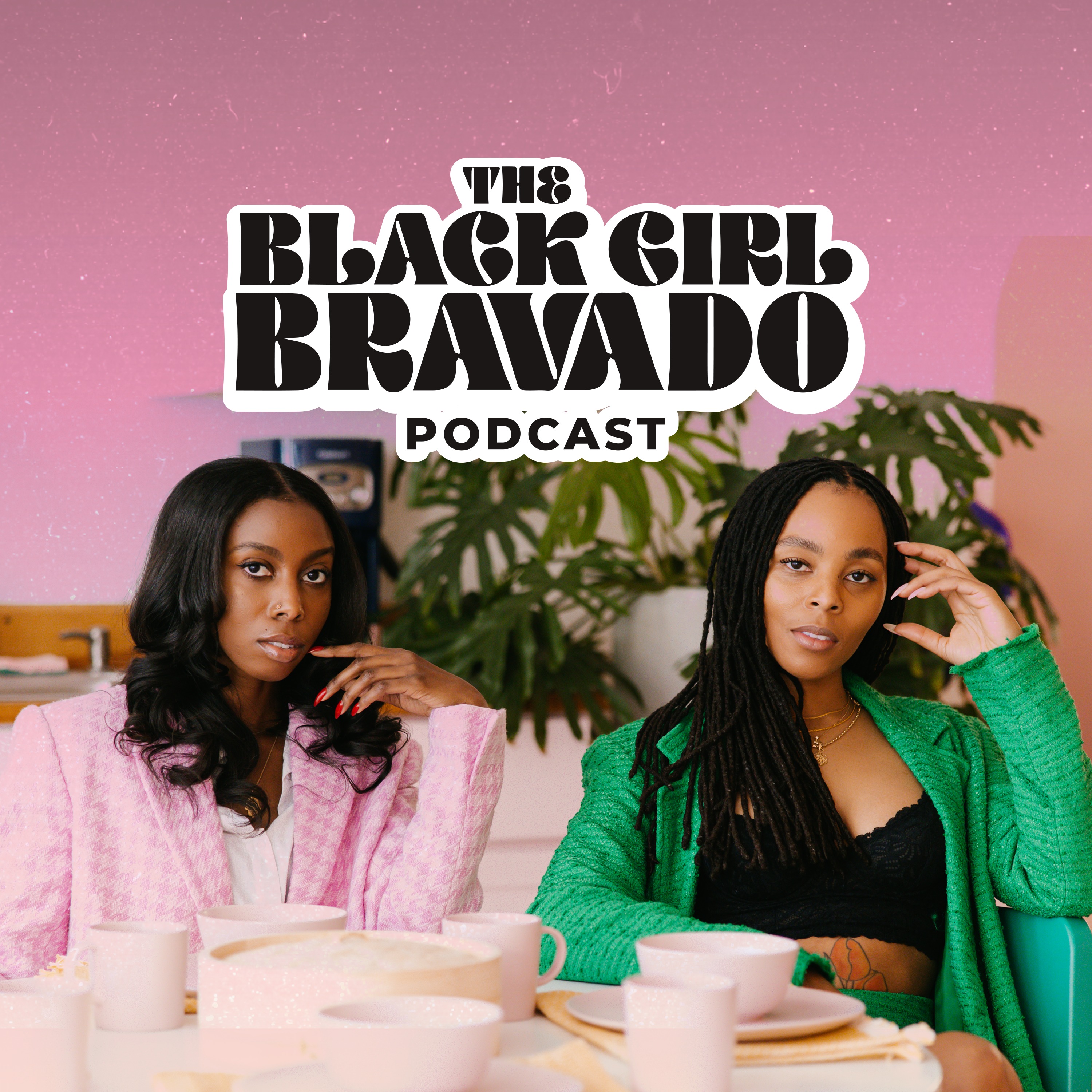
The Black Girl Bravado
Black Girl Bravado
Slay Girl Slay
Ashley Leggs
She's So Lucky
She's So Lucky
SpeakEZ Black Renaissance Podcast
Qadry Harris, M. Div.
Bobo's Void
Bobo, Donavon and MangoUpstream
Upstream
Caribbean Mystics
SpectreVision Radio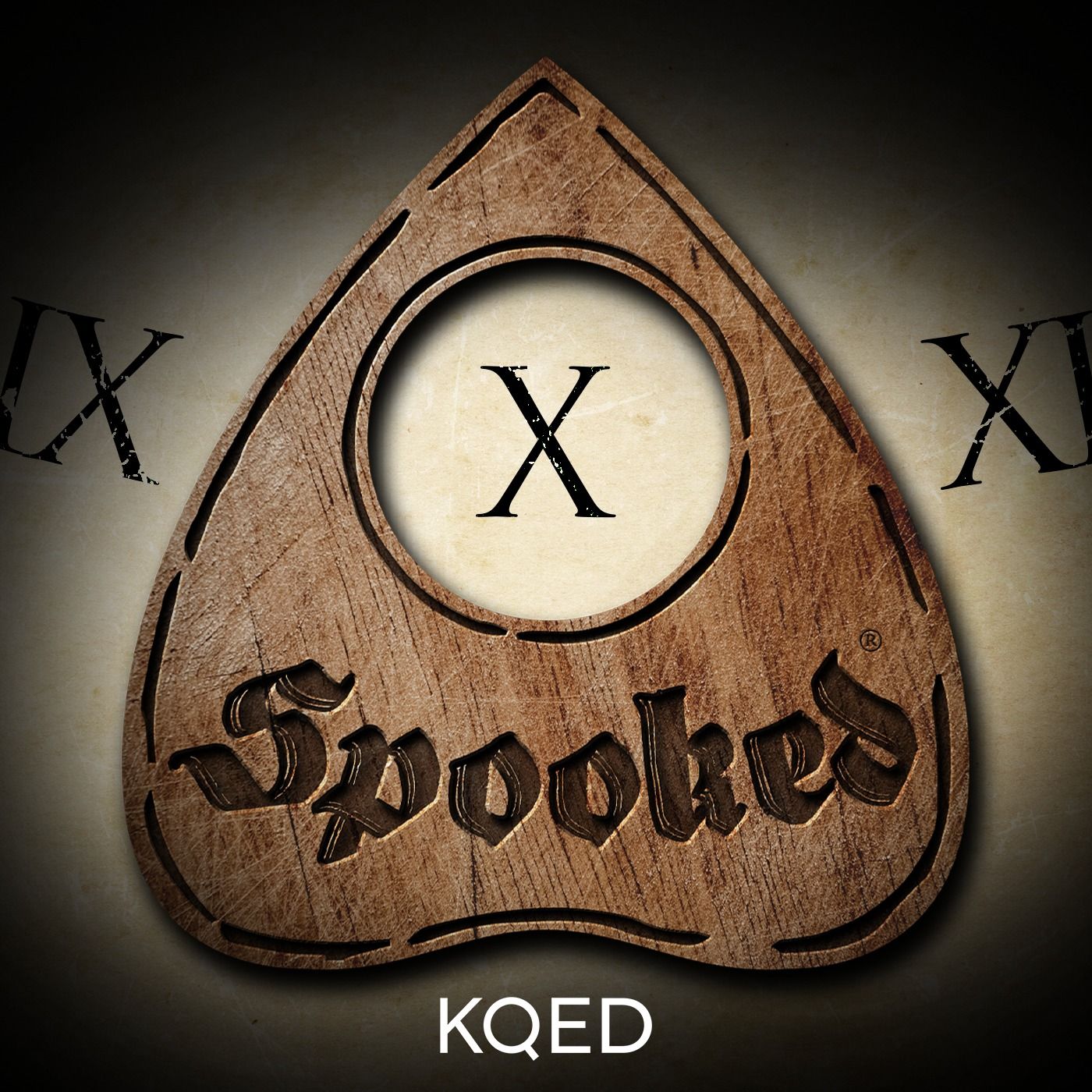
Spooked
KQED and Snap Studios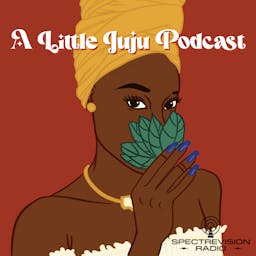
A Little Juju Podcast
SpectreVision Radio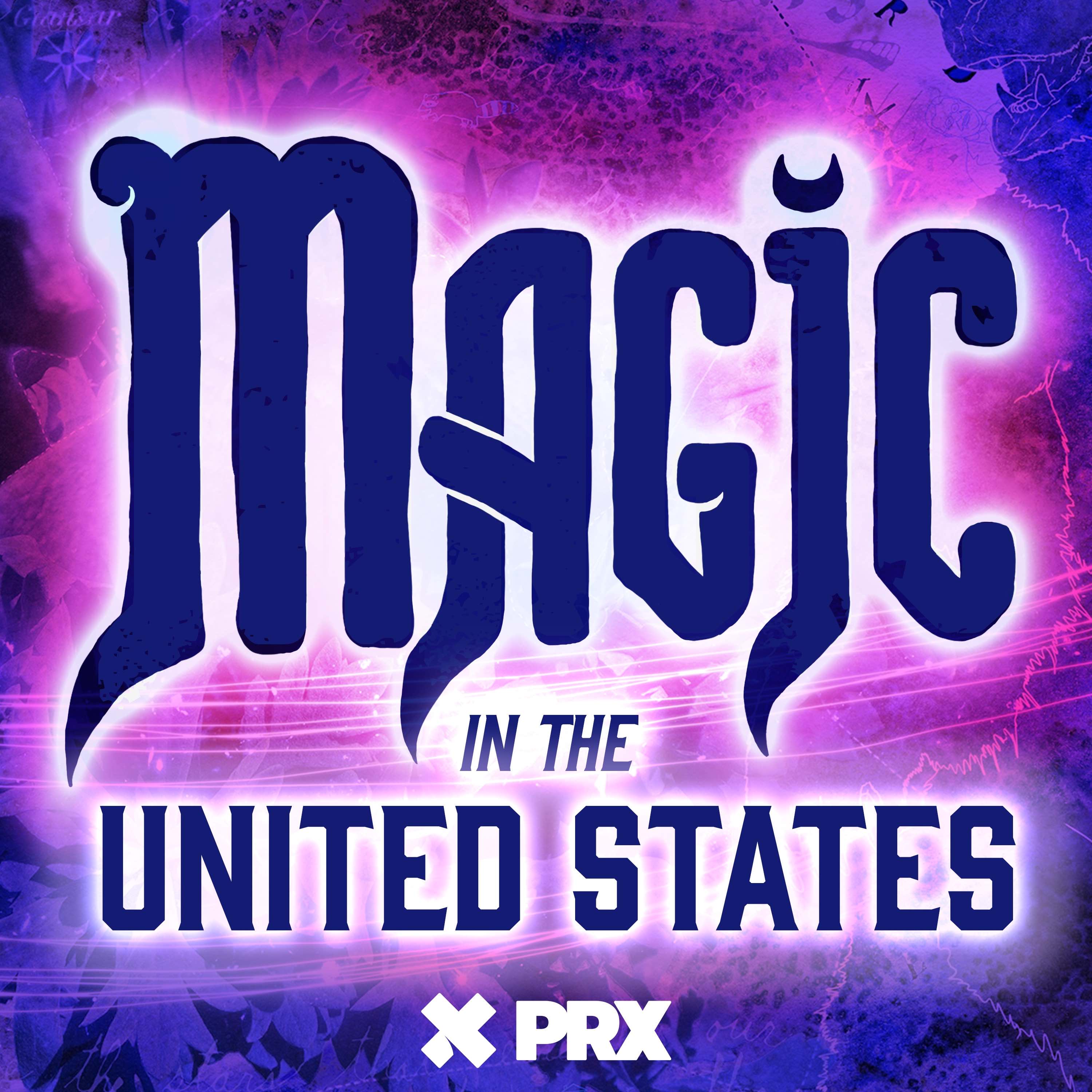
Magic in the United States
Magic in the United States
Sensual Faith Podcast with Lyvonne Briggs
Lyvonne Briggs
Our Ancestors Were Messy
Nichole Hill
CultureCon Uncut
Spotify Studios
Hold For Maintenance
Hold For Maintenance
